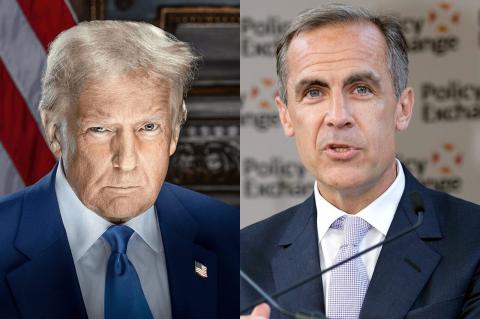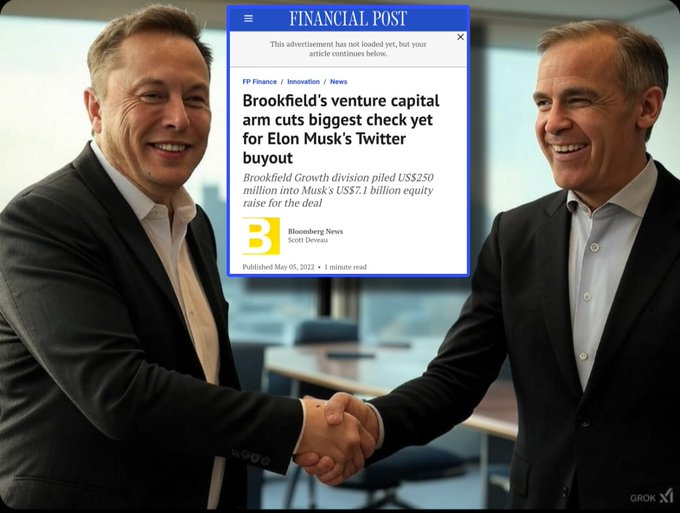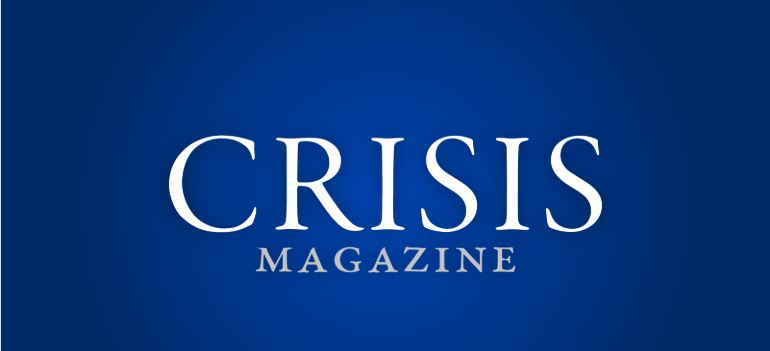
Mark Carney and the New Technocracy: A Moral and Political Reckoning
Mark Carney’s ascent in Canadian politics—unelected, unaccountable, and orchestrated by global elites—signals more than a national leadership transition. It offers a stark preview of a post-democratic future: one defined by centralized economic control, digital surveillance, demographic engineering, and ideological enforcement. Carney’s vision is not merely politically misguided; it is, from a Christian moral standpoint, deeply disordered.
Democracy in Name, Technocracy in Practice
Carney’s emergence as de facto leader of the Liberal Party occurred without a national vote or democratic mandate. Installed with 85.9 percent internal party approval—despite only 40 percent of members casting ballots—he now governs with the backing of fewer than 0.5 percent of Canadians. A snap election has been scheduled for April 28, allowing minimal time for public scrutiny of his agenda.
To clear the path for Carney, the Liberal Party apparatus ousted sitting MP Chandra Arya and installed Carney as the candidate in Nepean—a riding he appeared unfamiliar with, even publicly misstating its geographical boundaries. This was more than a simple gaffe; it revealed the top-down mechanics of a political project that prioritizes elite coordination over grassroots representation. Arya voiced concern in a post on 𝕏 following his removal, writing: “This decision raises significant questions about the legitimacy of the leadership race and, by extension, the legitimacy of the next Prime Minister of Canada.”
Still, global elites—from Wall Street bankers to Davos technocrats—rushed to endorse him. Even Donald Trump, once a vocal critic of globalism and Canadian climate policy, referred to Carney as “Prime Minister” after a March phone call. What we are witnessing is a shift in legitimacy—from democratic consent to elite consensus.

A Transnational Broker, Not a National Leader
Trump’s praise may seem contradictory, but following the financial trail reveals a clearer picture. In 2018, Brookfield Asset Management signed a lease to rescue 666 Fifth Avenue, a floundering property owned by Jared Kushner’s family. The deal, which involved financing from the Qatar Investment Authority, relieved Kushner’s firm of a massive debt. Around the same time, the Trump administration began softening its stance toward Qatar.
Carney joined Brookfield in 2020 and later became its chairman. Under his leadership, the firm relocated its headquarters from Toronto to New York in 2024—an act that aligned with Trump’s “America First” economic policies. Although Carney stepped down in 2025, he retains up to $6.8 million in Brookfield shares and options. His financial interests remain firmly embedded in global capital circuits.
Under Carney’s leadership, Brookfield invested $250 million in Elon Musk’s acquisition of Twitter, further entrenching the firm—and Carney himself—within the nexus of technocratic capital and digital influence.
To Trump, Carney is a pragmatic technocrat; to Canadians—and Americans—he should appear as what he is: a managerial globalist with loyalties not to any one nation but to elite networks that transcend borders and undermine local sovereignty.

Governance by Algorithm
Carney’s résumé reads like a blueprint for the 21st-century “manager-king.” Former governor of both the Bank of Canada and the Bank of England, a U.N. special envoy for climate finance, and chairman of Brookfield, he embodies the consolidation of financial, political, and environmental power into the hands of unelected experts.
He works closely with Mark Wiseman, former BlackRock executive and leader of the Century Initiative, which seeks to increase Canada’s population to 100 million. Behind this demographic ambition lies not compassion but a corporate agenda: import cheap labor, inflate housing markets, and dilute dissent under the guise of economic “growth.”
Carney’s model doesn’t govern people; it administers populations.

Digital Chains: The Programmable Trap
Most alarming is Carney’s advocacy for Central Bank Digital Currencies (CBDCs). Unlike traditional cash, CBDCs can be programmed—allowing authorities to track, restrict, or even reverse transactions. This creates the infrastructure for financial surveillance and behavioral control. Your ability to spend could hinge on your carbon score, vaccination status, or political views.
Carney has praised China’s digital yuan and even suggested it could serve as a global reserve currency. His admiration is not merely rhetorical—it signals a willingness to import systems of authoritarian financial control under the banners of equity and climate action.
Such a regime eliminates moral agency. Citizens become data points in a behavioral algorithm. It is the antithesis of the Christian moral order, which upholds human dignity, free will, and subsidiarity.

Bitcoin: Resistance through Design
This is the real reason Carney fears Bitcoin. Bitcoin is a system of economic resistance. It is decentralized, non-programmable, and is capped at 21 million coins. It incentivizes prudence and long-term thinking—the very virtues fiat currency erodes.
Fiat currencies, controlled by central banks, are inflationary by design. They enable silent wealth transfer through money printing, degrading savings, and distorting markets. Carney’s characterization of Bitcoin as dangerous is not economic—it is ideological. Bitcoin refuses to be manipulated.
As Bitcoin expert Jeff Booth, author of The Price of Tomorrow, stated years ago: “We are told we need inflation. This is not true. It only seems true because the rules of the game were designed that way.” And as such, it cannot fund foreign wars or ideological pet projects (like agendas such as DEI initiatives, climate quotas, mRNA vaccine development, government propaganda, and coercive mandates). It functions outside the technocratic cage.
For Christians, Bitcoin aligns with a moral vision of economics. It respects the fruits of labor, limits government overreach, and operates on principles of transparency and voluntary exchange. It resists Mammon.
The Global Blueprint
Carney’s project is not uniquely Canadian. It is a prototype for a broader model already taking shape globally. Americans should not dismiss him as a distant curiosity. His worldview—one that champions surveillance finance, mass immigration, Environmental, Social, and Governance (ESG) metrics, and top-down governance—is becoming the default among Western elites.
His $35 billion housing plan in Canada, to accommodate 500,000 newcomers, isn’t primarily about shelter—it’s about scaling a programmable labor force. This isn’t integration; it’s replacement under a veneer of compassion.

As Pope Benedict XVI warned in Caritas in Veritate, global governance severed from moral foundations becomes a cold, impersonal machinery of control.
Red Flags: China and Foreign Influence
Complicating Carney’s rise are disturbing signals of foreign entanglements. A recent report from the Privy Council Office revealed that a disinformation campaign originating from a Chinese state-linked WeChat account targeted Carney—purportedly to undermine his leadership. While the campaign framed him negatively, the broader picture suggests a more nuanced relationship.
China’s history of election interference in Canada is well-documented. Carney’s extensive involvement with international financial institutions may have drawn him into spheres heavily influenced by Chinese state interests. His praise for China’s digital currency and regulatory structure raises legitimate concerns about whether he would defend Canada’s sovereignty or cede it to a global governance framework aligned with Beijing’s values.
Brookfield and the Manufactured Opposition to Trump
Carney has styled himself as a defender of Canadian interests against Trump-era protectionism. But his actions complicate that narrative. Under his chairmanship, Brookfield moved its head office from Toronto to New York City, aligning with Trump’s economic strategy. His involvement in deals that helped ease Kushner family debts further blurs the lines between opposition and collusion.
Is Carney truly an opponent of Trumpian nationalism, or is he a parallel technocratic force—serving the same elite financial interests under a different aesthetic? Could they simply be two sides of the same coin?

The Illusion of Saviors
Both Carney and Trump have been cast as national saviors. But the Christian worldview reminds us that no political figure offers true salvation. These are manufactured messiahs—elevated by media, influencers, markets, and fleeting political urgency.
The only true Savior is Jesus Christ—unchanging, incorruptible, and immune to political fashion. Our hope must be rooted in His eternal kingdom not the managerial dreams of men who wield unchecked power behind smiling façades.
A Call to Discernment
To Canadians: This election is not merely about party platforms. It is a referendum on whether your country will be governed by conscience or code.
To Americans: Observe carefully. Canada is a test case. If Carney’s model proves viable, it will be exported.
To Christians everywhere: The battle before us is spiritual. It is not just a matter of policy but of principle. Will we be ruled by fiat systems that reduce the human person to a data point—or by a moral vision that defends the dignity of each soul?
Much more could be said—and from many different angles. We haven’t even touched the surface. I have discussed other issues with Carney, here, here, and here.
Resist now—while resistance still has meaning and possibility.


